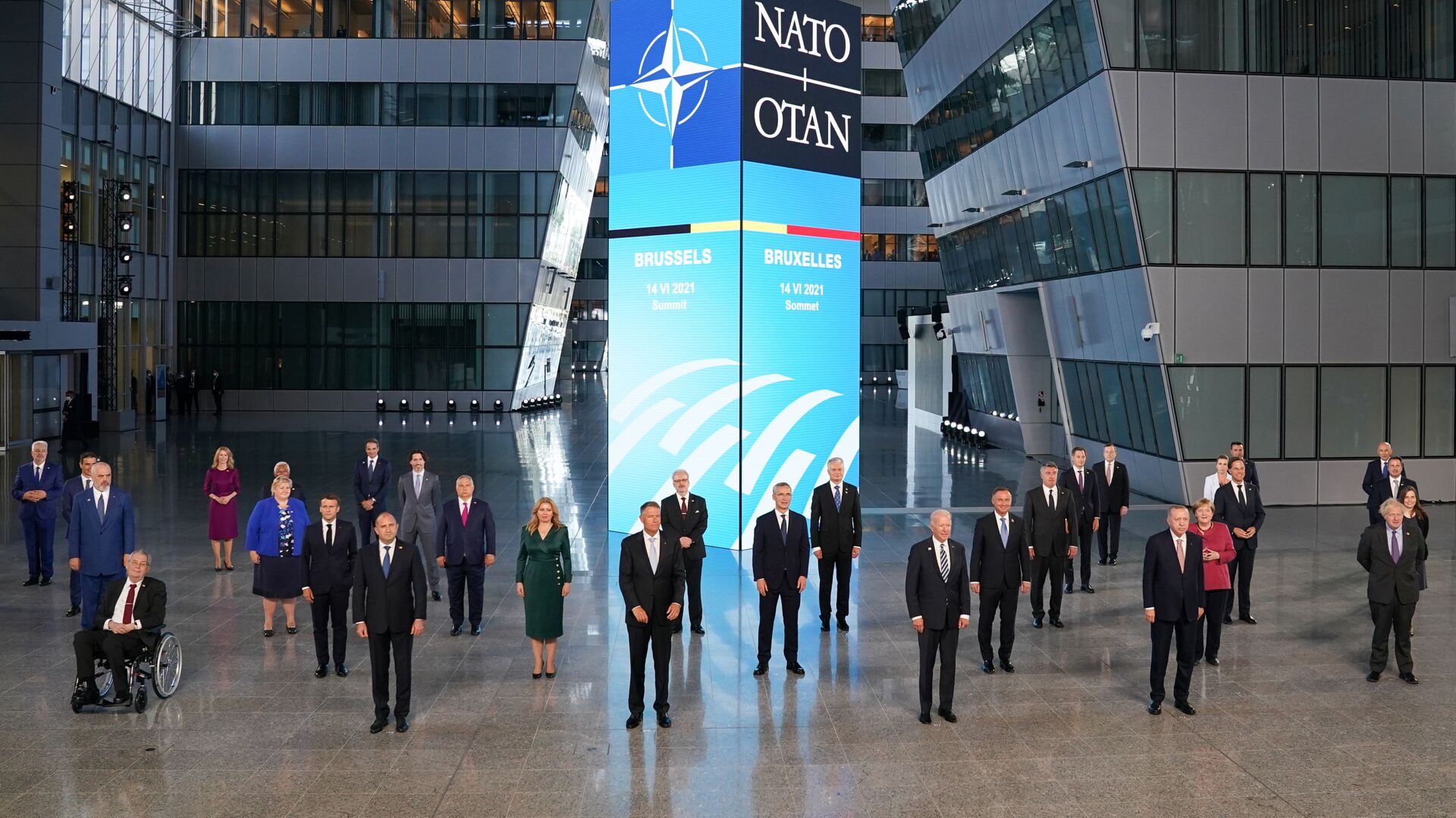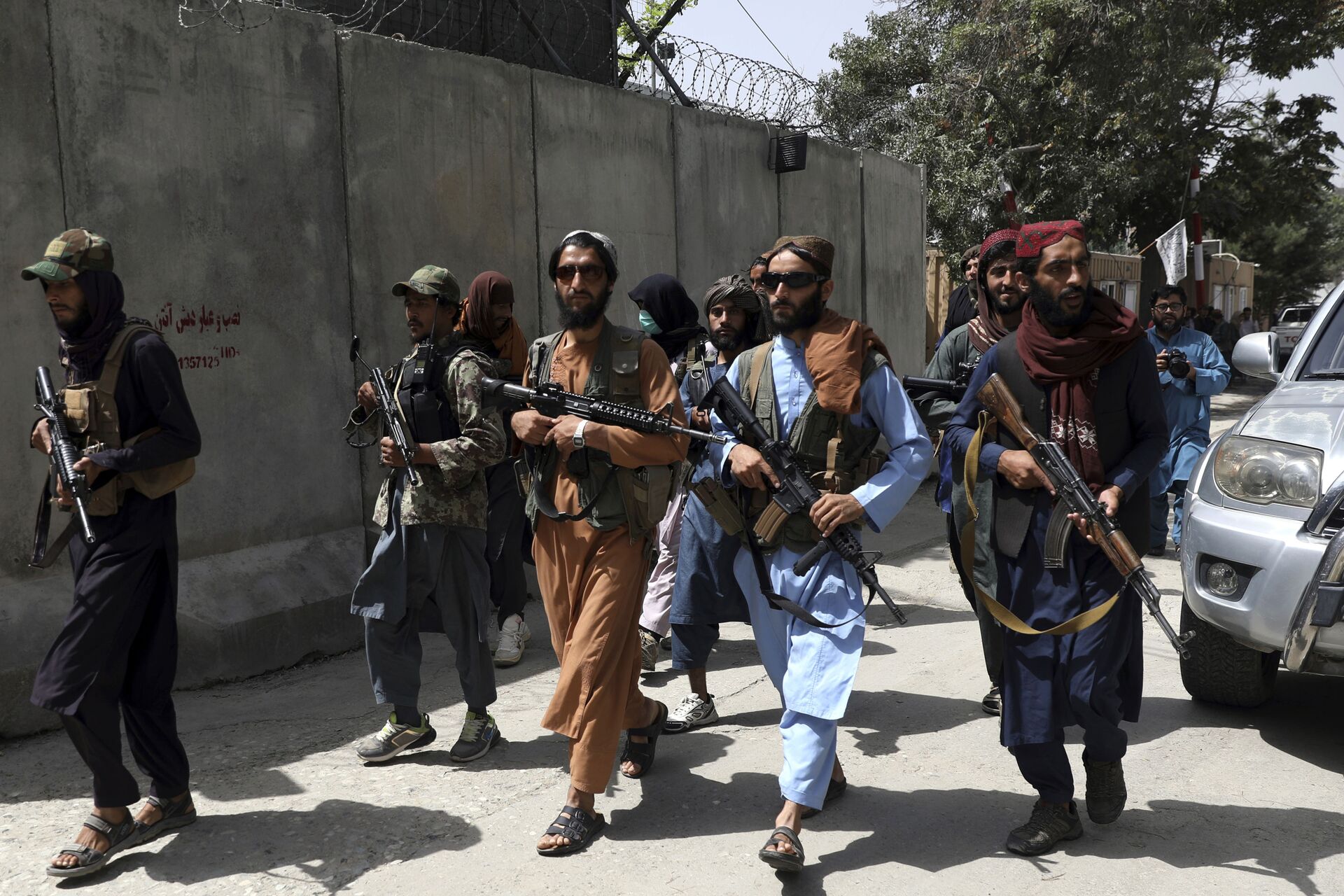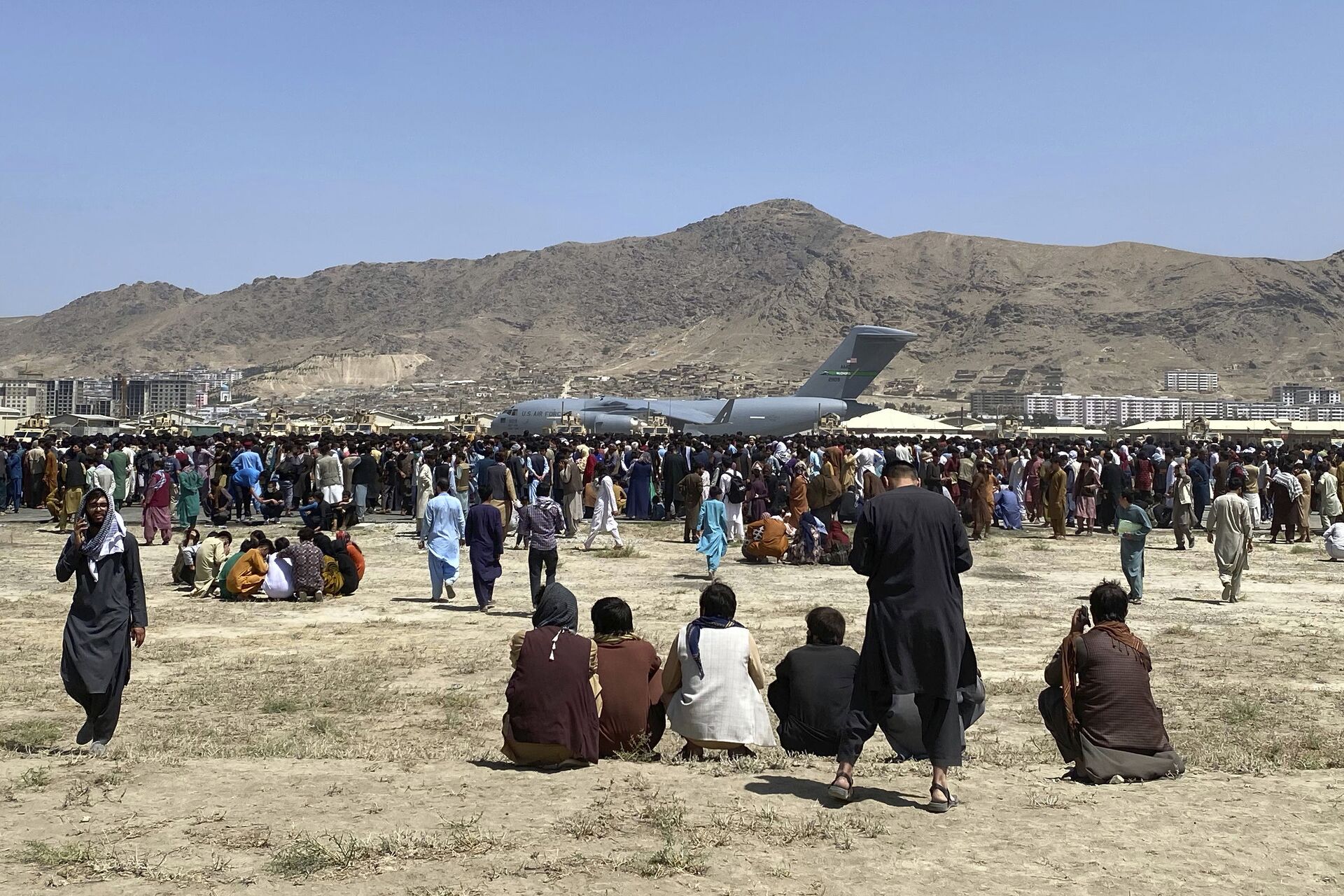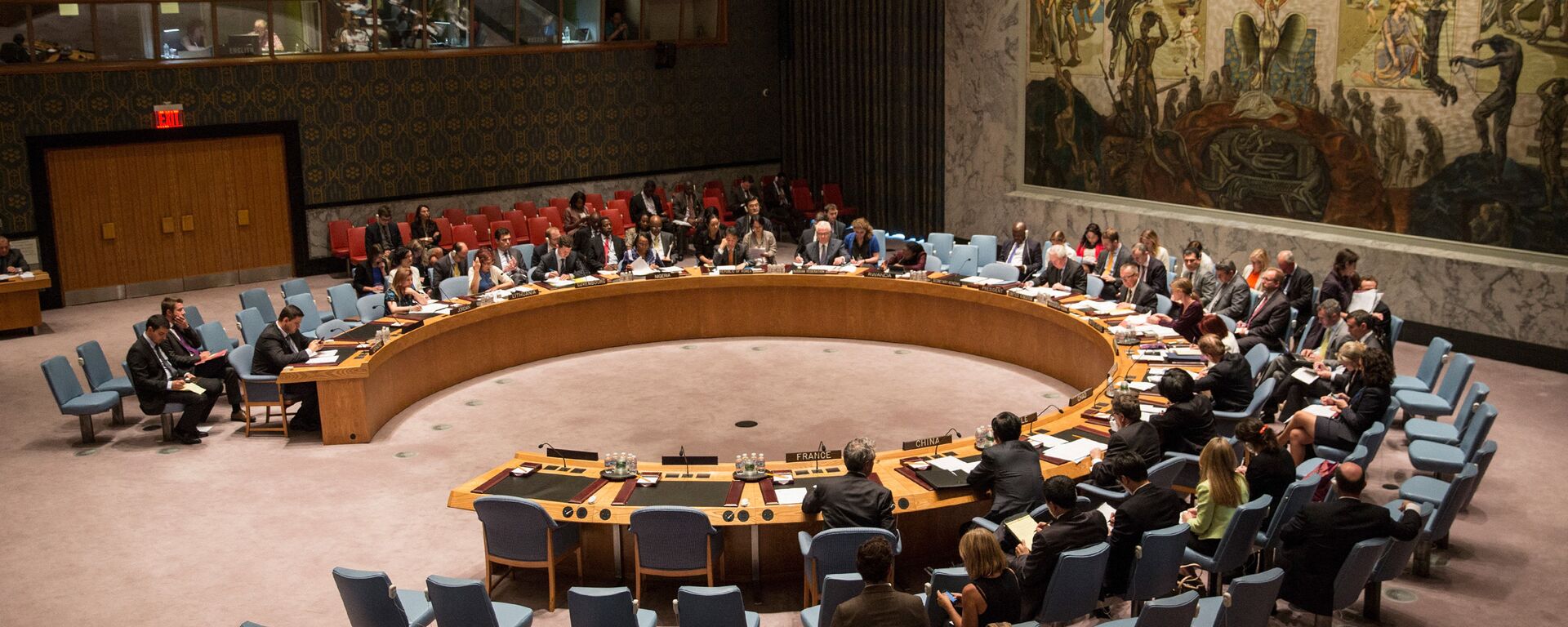America is Whack: US Allies, Client States Fear West ‘Weaker Globally’ After Afghan ‘Humiliation’
16:16 GMT 19.08.2021 (Updated: 18:16 GMT 19.08.2021)

© REUTERS / KEVIN LAMARQUE
Subscribe
The US-backed government in Kabul fell on Sunday, four months after President Biden announced that America would be withdrawing from Afghanistan after nearly 20 years of war. Officials in the US and around the world expressed shock at the speed of the capital's collapse – less than two weeks after the Taliban captured its first city.
The surprise collapse of the Kabul government on 15 August continues to send shockwaves across the globe, forcing many US allies to privately (and sometimes openly) reevaluate Washington’s dependability and role as the planet’s preeminent power.
Latvian Defence Minister Artis Pabriks has said that the “chaos” resulting from the disorderly US withdrawal from Afghanistan has weakened the Western alliance and forced members to reconsider whether the bloc is able to engage in nation-building abroad.
Afghanistan “will greatly change Western attitudes and appetites for what to do in other regions,” Pabriks said, speaking to Latvian Radio on Tuesday, his remarks cited by Sputnik Latvia. “This era is over. Unfortunately, the West, and Europe in particular, are showing they are weaker globally,” the minister suggested.
Pabriks’ comments were echoed by Armin Laschet, the politician running for the German chancellorship from Angela Merkel’s Christian Democratic Union in elections scheduled for next month.
“[Afghanistan] is the greatest debacle that NATO has suffered since it was founded,” Laschet said in a press conference in Berlin on Monday, saying that a “relentless error analysis” is now necessary to figure out what exactly went wrong. “It is a political and humanitarian catastrophe. The speed with which the Taliban occupied Kabul and many of the country’s provinces is shocking."

Taliban fighters patrol in Wazir Akbar Khan neighborhood in the city of Kabul, Afghanistan, Wednesday, Aug. 18, 2021.
© AP Photo / Rahmat Gul
Former British National Security Advisor Lord Peter Ricketts expressed similar frustrations, complaining that “it looks like NATO has been completely overtaken by American unilateral decisions,” starting with “Trump’s decision to start talking to the Taliban about leaving and then the Biden decision to set a timetable.”
“The Afghanistan operation was always going to end some time, it was never going to go on forever, but the manner in which it’s been done has been humiliating and damaging to NATO,” Ricketts said, speaking to the Financial Times.
EU foreign policy chief Josep Borrell offered similar, but more veiled, criticism of Trump and Biden's approach, telling reporters on Tuesday that it was “not the European Union who decided to leave Afghanistan,” and that the withdrawal “could have been managed in a better way, for sure.”
Lord George Robertson, the former NATO general-secretary on hand to trigger the bloc’s Article 5 in the aftermath of the 9/11 terror attacks (which became for the pretext for the US coalition’s invasion of Afghanistan in late 2001), also suggested that the US unilateralism had "damaged" the alliance, “because the principle of "in together, out together" seems to have been abandoned both by Donald Trump and by Joe Biden.”
Emperor Has No Clothes?
Other officials suggested that Afghanistan had demonstrated the futility of the West’s technological and military power in the face of determined resistance. “Whatever happened to ‘America is back’?” asked Tobias Ellwood, chairman of the British parliament’s defence committee, referring to Biden’s pledge earlier this year to “restore” alliances damaged by Trump.
“People are bewildered that after two decades of this big, high-tech power intervening, they are withdrawing and effectively handing the country back to the people we went in to defeat. This is the irony. How can you say America is back when we’re being defeated by an insurgency armed with no more than [rocket propelled grenades], land mines and AK-47s?” Ellwood asked.
On Wednesday, Prime Minister Boris Johnson conceded that the West could not continue its mission in Afghanistan without “American might,” including both air power and troops on the ground. The British leader stressed that it was an “illusion” to think that any NATO member could continue military operations in the country after the US exit, and stressed that he did not believe “that deploying tens of thousands of British troops to fight the Taliban is an option.” Chancellor Merkel and NATO chief Jens Stoltenberg expressed similar sentiments earlier in the week, saying that no individual alliance member could fill the US’s shoes.

Hundreds of people gather near a U.S. Air Force C-17 transport plane at a perimeter at the international airport in Kabul, Afghanistan, Monday, Aug. 16, 2021.
© AP Photo / Shekib Rahmani
Washington’s allies in Kiev have also expressed concerns over the situation, with Rada lawmaker Maxim Buzhansky suggesting that Ukraine should forget about any guarantees provided by the US in the wake of the images coming out of Afghanistan of people falling from airplanes taking off from Kabul. Alexei Arestovich, a diplomat from Ukraine’s delegation to the trilateral contact group on Donbass, echoed these concerns, suggesting that Afghanistan was proof of “the collapse of the doctrine of ‘liberal democracy for all’,” and that the failure in Afghanistan demonstrates that this kind of “democracy” can destroy people and states in the same way as “totalitarian governments” can.
Biden has sought to put a brave face on the situation, telling ABC News Thursday that Russia and China were the “most disappointed” to see the US getting out, rephrasing remarks from days earlier that Moscow and Beijing “would love nothing more than the United States to continue to funnel billions of dollars in resources and attention into stabilising Afghanistan indefinitely.”
The US president’s claims don’t square with recent comments and policy decisions made by both Russian and Chinese officials, with Chinese Foreign Minister Wang Yi telling Secretary of State Antony Blinken this week that the “hasty US withdrawal from Afghanistan has caused a severely adverse impact on the situation.” Last month, Russia demonstratively deployed part of its military contingent in Tajikistan to the Afghan border for drills amid concerns expressed by defence minister Sergei Shoigu that jihadist militants were being transferred to the country from Syria and Libya.
In a commentary on the Afghanistan fiasco, China’s Global Times newspaper questioned the narrative put forth by Western politicians and observers that Trump and Biden had demonstrated some kind of unusual or out of place lack of concern over the opinion of allies when deciding to quit Afghanistan. Contributor Yang Sheng suggested that while “Biden shows respect on the surface…in practice, the US is still unilateral, which means ‘multilateralism’ is just a slogan for Biden to please Europe.”



